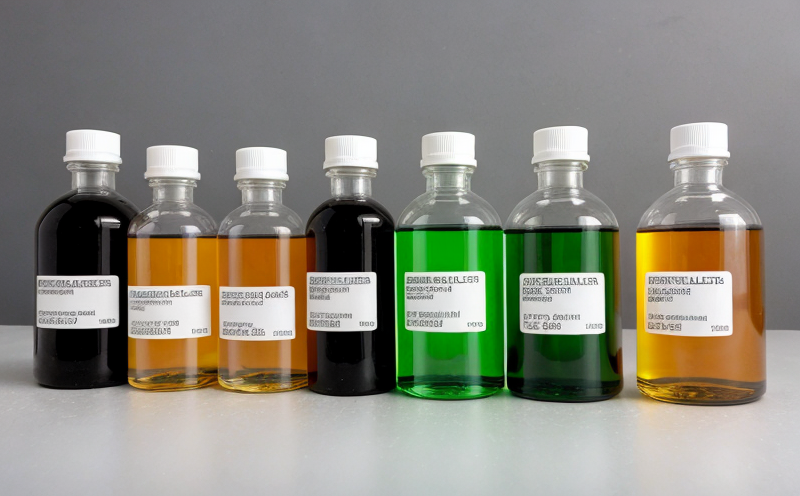Extractables Testing in Composite Materials
In the realm of medical device testing, chemical characterization and extractables/leachables analysis plays a critical role. This is especially true when dealing with composite materials used in devices that come into contact with bodily fluids or tissues. The process involves identifying and quantifying chemicals that can leach out from these materials under various conditions. Understanding the potential for migration of potentially harmful substances ensures patient safety.
Composite materials, due to their versatility and mechanical properties, are increasingly utilized in medical devices. These composites often consist of polymers reinforced with fibers or particulates such as carbon, glass, or silica. The challenge lies in ensuring that these materials do not release unwanted chemicals into the environment they interact with. Extractables testing helps determine which chemicals might be released under specific conditions and ensures compliance with regulatory standards.
The testing process typically involves exposing the composite material to solvents that simulate real-world exposure scenarios, such as physiological fluids or lubricants. The extracts are then analyzed using sophisticated analytical techniques like High-Performance Liquid Chromatography (HPLC), Gas Chromatography-Mass Spectrometry (GC-MS), and Fourier Transform Infrared Spectroscopy (FTIR). Compliance with standards such as ISO 10993-12, ASTM F2659, and EN ISO 17482 is paramount to ensure the safety of medical devices.
Specimen preparation is critical for accurate extractables testing. Materials are cut into standard sizes and shapes before exposure to solvents. The choice of solvent mimics the conditions under which the device might be used or stored, such as saline solution or phosphate buffered saline (PBS). After extraction, the extracts are analyzed using the aforementioned analytical techniques.
The results provide insights into potential risks associated with the use of composite materials in medical devices. This information is crucial for manufacturers to make informed decisions about material selection and processing methods. By adhering to rigorous testing protocols, companies can ensure compliance with regulatory requirements and enhance patient safety.
- Why Choose This Test: Comprehensive evaluation of potential chemical risks.
- Why Choose This Test: Compliance with international standards ensuring patient safety.
Why Choose This Test
Selecting the right test can significantly impact your medical device’s safety and regulatory approval process. Extractables testing in composite materials offers a comprehensive approach to identifying potential risks associated with material use. By choosing this service, you ensure that your devices meet stringent international standards such as ISO 10993-12, ASTM F2659, and EN ISO 17482.
The test results provide critical data on the chemicals released from composite materials under various simulated conditions. This information is invaluable for making informed decisions about material selection and processing methods. Compliance with these standards not only ensures patient safety but also protects your company against potential legal issues and recalls.
Quality and Reliability Assurance
The reliability of extractables testing in composite materials is paramount to the success of any medical device. Our laboratory employs advanced analytical techniques and adheres strictly to international standards, ensuring accurate and reliable results. Regular audits and certification processes further enhance our commitment to quality.
Our team of experts ensures that every step of the process—from specimen preparation to final analysis—meets the highest industry standards. By choosing this service, you can be confident in the integrity of your test results and the safety of your devices. Our rigorous protocols and state-of-the-art equipment guarantee consistent and reliable outcomes.
International Acceptance and Recognition
The global nature of medical device manufacturing means that compliance with international standards is essential for market acceptance. Extractables testing in composite materials is widely recognized across the world, ensuring that your products meet regulatory requirements in multiple jurisdictions.
Our laboratory’s adherence to ISO 10993-12, ASTM F2659, and EN ISO 17482 guarantees international recognition of our test results. This broad acceptance facilitates smoother market entry and compliance with diverse regulatory bodies. By leveraging our expertise in this area, you can ensure that your medical devices are safely and effectively used across different regions.





